When on August 5 last year J&K’s autonomy was erased, Jammu and Ladakh erupted in celebration at the development. A year on, the two regions are learning to their detriment that the altered constitutional status of the erstwhile state isn’t in their interest, reports Tasavur Mushtaq
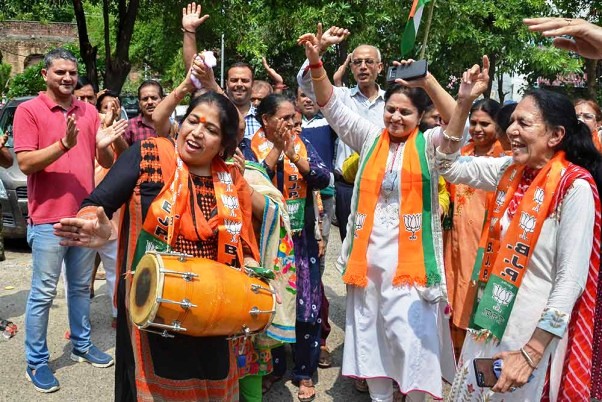
In the late eighties, as militancy erupted in Kashmir, a simultaneous movement emerged to “free Ladakh from Kashmir”. Initially launched by the Ladakh People’s Movement for Union Territory (UT), it was a demand for protection from alleged discrimination by Kashmir administration.
Almost three decades later, when Delhi on August 5, 2019, decided to strip Jammu and Kashmir of its special status and divide the erstwhile state into two UTs, Ladakh was carved out as a separate, federally controlled UT without an assembly. A year later, the arid Ladakh is at crossroads.
Muted Celebration
Moments after Home Minister Amit Shah announced the revocation of the special status of Jammu and Kashmir and downgrading the state into two UTs, parts of Ladakh erupted in celebration. Two days later, 34-year-old MP from Ladakh, Jamyang Tsering Namgyal rose to speak in Parliament and talked about a range of issues, from secularism to secessionism. He fiercely gave a rebuttal to the concerns that were raised by speakers from parties that opposed the move. His speech won him accolades.
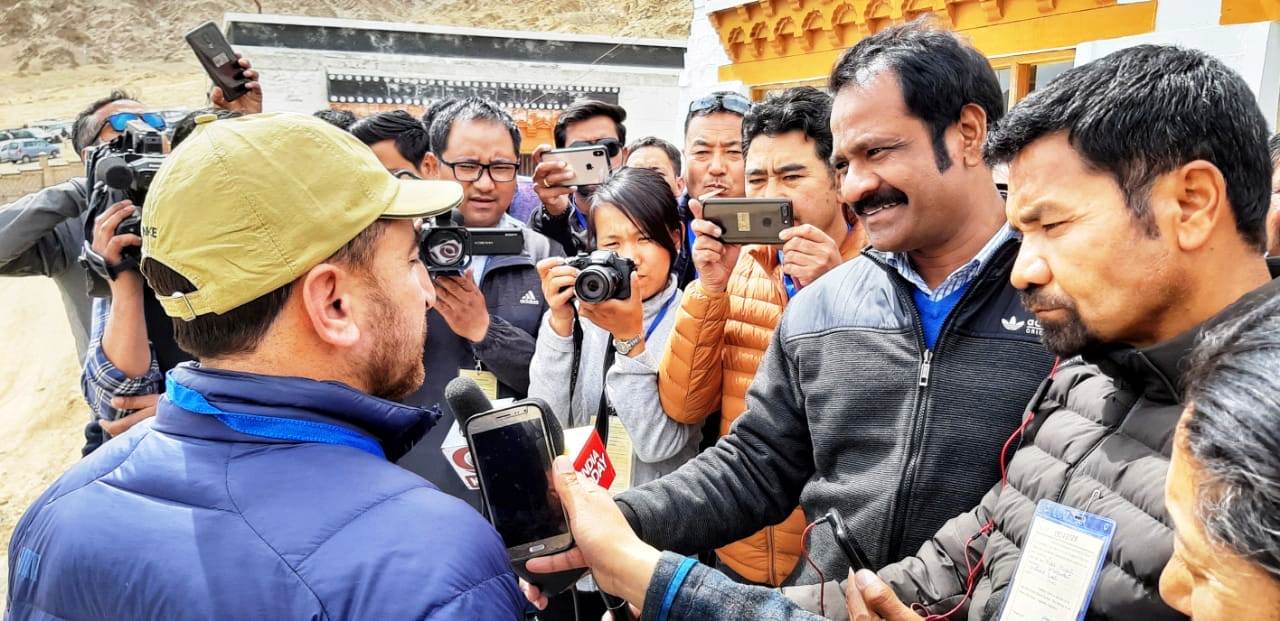
Rejoicing over the decision, the markets in Leh had decorations hanging overhead and happiness in the air for many days. “We are finally free of Kashmir,” a trader had told Kashmir Life. Not concerned about the loss of assembly, there was a consensus about getting a stronger Hill Development Council.
“It doesn’t matter if we don’t have an Assembly. We have the Hill Council. The government should now strengthen it further and do something about the job scenario,” said Chhering Norbu, a resident of Leh’s Thiksey village, a few months after the abrogation. The ‘hero’ of 1989 agitation, Nawang Rigzin Jora, the face of Congress in Ladakh, regretted that “the demand was always for a UT with a legislature.” A former cabinet minister, Jora’s constituency is among the four Ladakh seats in the Jammu and Kashmir Assembly that has ceased to exist.
Unlike in Leh, a Muslim dominated belt of the desert region, Kargil had concerns from day one. The residents saw the decision as “detrimental” to their interests. A school teacher by profession, Shakeel Hussain said the decision to abrogate special status was akin to “snuffing life out of our bodies.”
Reacting to Delhi’s decision, a local businessman, Ahmad Raza said, “We were promised stars in 2014 by PM Narendra Modi, but in turn, we were downgraded from our existing position.”
A Year On
As the new reality sunk in, Ladakh no longer exists as part of Kashmir. The largest division in the erstwhile state, it has now become a federally controlled UT, without a legislature. But the situation on the ground seems “disturbing” even for the “ecstatic” residents of Leh.
BJP-led Leh Council had to hit the streets in May 2020 to demand the evacuation of its residents amid the scary virus. Led by incumbent Chief Executive Councillor (CEC) Gyal P Wangyal, and executive councillors, the protest was against the “delay in evacuation of stranded people of Ladakh from various parts of the country”.
Later, the BJP Ladakh president Chering Dorjay resigned in protest against the alleged failure of the UT administration. He claimed that the UT’s administration was not allowing public representatives and institutions like the Hill Councils to function.
Terming the August 5 decision akin to “robbery”, social activist Sajjad Hussain Kargili said that people of Ladakh are always against the division on the basis of “region, religion, or language.” Sajjad contested the 2019 parliamentary elections as an Independent candidate.
“Confusion was created that Ladakh wants separation from Kashmir and later it was portrayed that people here are happy, but that is not the case,” Sajjad told Kashmir Life. “Ladakh is not Leh and Kargil cannot be ignored. People of Kargil protested from day one and also August 5 was declared as a black day by all political and socio-religious organisations.”
Sharing the plight of last one year, Sajjad said: “Muslim majority feels betrayed, deprived and humiliated,” insisting “as the democracy has gone, it feels there is some invisible control over our land and lives.”
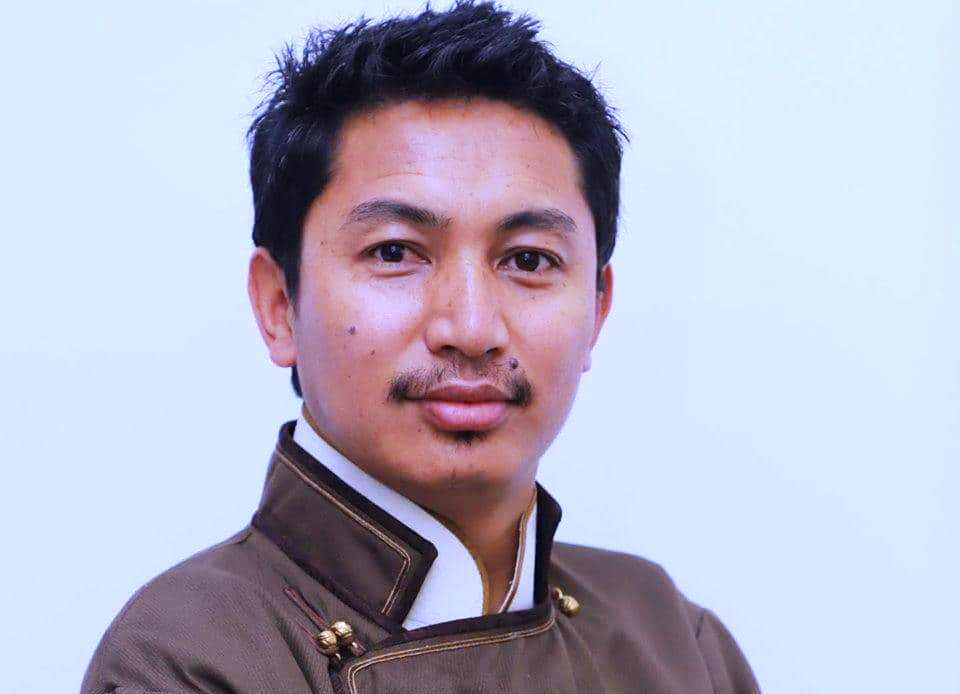
Contrary to expectations of a better administration, people in Ladakh believe the new setup has dashed their hopes. With less staff operating in the makeshift accommodations, there is nothing systemic in place, they alleged.
Responding to the shortage of staff, Umang Narula wrote a letter asking for the staff. “The UT of Ladakh is facing serious constraints of manpower at various levels. Some directorates and heads of departments are headless, which is adversely affecting the delivery of public services (in Ladakh),” the letter reads.
The staff was later deputed to help the administration run the affairs. However, as per the reports, there is opposition to the deployment of staff from Jammu and Kashmir in the desert region.
Further, locals were shocked when J&K Bank advertised posts and Ladakh being a separate UT had no share in its recruitment. The new J&K domicile law bar residents of Ladakh. Besides, there is no formal recruitment agency to fill gazetted posts. Open-source data suggests that more than 5,000 posts, including 1,000 gazetted posts, remain vacant in the UT administration in Ladakh.
“The J&K Bank’s assets remain a common entity. Our youth should be allowed to sit for the test” said chairman and chief executive councillor (CEC) of the Ladakh Autonomous Hill Development Council (LAHDC) Kargil.
However, recently the J&K administration announced reservation of four per cent seats in its engineering, medical colleges for students hailing from Ladakh UT. These include 24 seats in engineering, 35 in medical colleges.
Commenting over the decision of reserving four per cent quota for Ladakh in J&K Jobs, Sajjad said “if they had to reserve quota for Ladakh from J&K, what was a point in separating us. Or they could have kept quota in the entire country to show us they care.”
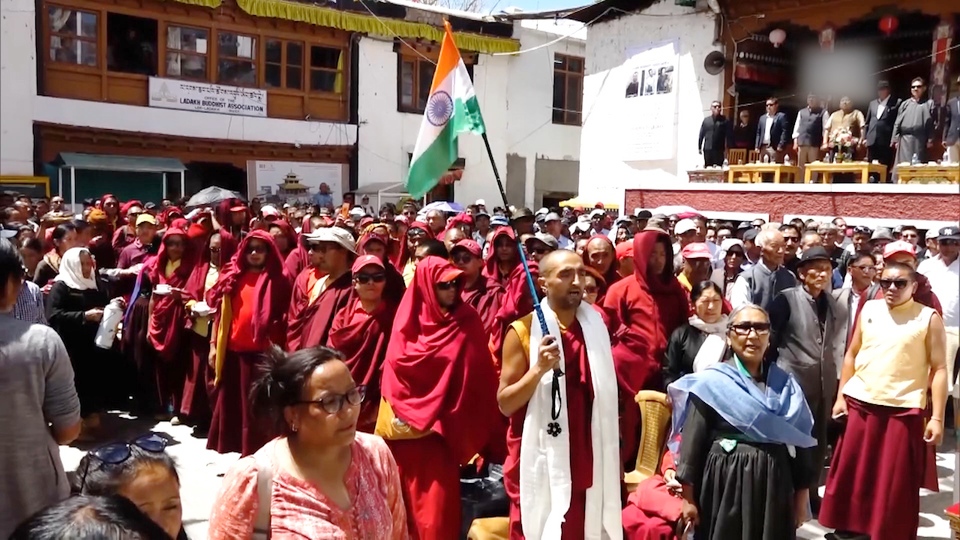
National Conference (NC) stalwart from Ladakh and former minister Qamar Ali Akhoon sums up the year gone “Jab se state bifurcation huva, paaya kuch nahi, khoya sab kuch” (After the state was bifurcated, we got nothing but lost everything).
Talking about the representation of Ladakh, Akhoon said, “We used to have four MLAs, two MLCs, two ministers, but they snatched everything.”
Voicing his concern about the student community and the job scenario, Akhoon said “the doors have been closed for Ladakh youth.”
“There was a proper reservation in every college and course for Ladakhi students and many of them qualified KPS, KAS, and other exams, now everything has been closed.”
Akhoon said the youth of Ladakh have to face now an all India competition “This makes it difficult for them to compete and secure the seats,” he said. Post-August 5, it has been reported that Ladakh has 5000 additional posts to fill for running the administrative setup.
Pertinently, the recent recruitment of 110 doctors under the National Health Mission was done from across the country.
Regrets Asgar Ali Karbalai: “they took away from us what we had preserved from the last 70 years and not even a single promise was fulfilled.”
Talking to Kashmir Life, Karbalai, who has been the chief executive councillor of Ladakh Autonomous Hill Development Council, Kargil twice said: “voice of Ladakh has been snatched.”
Castigating the people who celebrated the separation, Karbalai said “jin logun ne jaeshin manaya, aaj inko bi pata chali ye hamare haq mei nahi hai” (people who celebrated earlier have a realisation today that this UT was never in our favour).
Karbalai said if UT had been the solution, the CEC and his councillors would not have been protesting against the administration. “Contrary to J&K, we don’t have any law, rule or act in Ladakh,” he said
Insiders in the administration said the “biggest setback to aspirations of Ladakh was snatching powers of once-powerful hill councils.” Affirming the change, NC’s Akhoon said: “today even a lower rung employee cannot be transferred on the request of the council.”
Division Demand
In December 2018, the Ladakh Autonomous Hill Development Council (LAHDC) of both Leh and Kargil demanded division for Ladakh from Kashmir region. The two councils had unanimously passed a resolution, demanding “complete autonomy from Kashmir’s administrative setup”.
Claiming that the J&K government discriminated against Ladakh in terms of development and treated it as a dumping yard in terms of postings, LAHDC sought a separate division for the Ladakh region instead of being part of the Kashmir region.
Later in February 2019, the administration led by Governor Satya Pal Malik granted Ladakh a divisional status, thus creating three administrative units of Jammu, Kashmir, and Ladakh.
This was the second time that Ladakh was granted more autonomous status in the erstwhile state. Earlier the twin districts of Leh and Kargil got Ladakh Autonomous Hill Development Councils (LAHDC).
Jammu’s Journey
Jammu was elated to see an end to the “discrimination” when Article 370 was read down. For decades, the region complained that “everything from politics to people was hijacked by Kashmir.” But after a year as a resident said “chest-thumping” is over with a sense of “dejection.”
Claimed to be the “masterstroke” to help BJP electorally in Jammu, the ground report suggests the leaders of the right-wing party have “lost the support” among the Jammu residents. The political resentments are brewing.
“When we not able to get high-speed internet restored ahead of Kashmir, how can we justify Jammu will get a larger pie in the new administrative set-up,” said a local BJP leader on condition of anonymity. Given the demand of locals led by the Dogra leaders of separation from Kashmir, they see the decision as a “humiliation.”
“We want statehood for Jammu separately. We thought we will benefit under this new arrangement but instead, we were demoted. It is a humiliation for people of Jammu who always supported the national interests,” said Vimal Kohli, a resident of Talab Tillo.

Beyond statehood, the residents fear losing land to the outsiders. “Jammu has been a hub of nationalist forces but now we fear that we will lose our land,” said Ravinder Bali, a government employee. “Anybody interested in J&K would first prefer Jammu”.
The Gujjar-Bakarwal community of the region too believe that demoting a state was “shocking.” While talking to media, former ADGP, and first vice-chancellor from the Bakarwal community, Masood Chowdhary said, “Jammu and Kashmir is the oldest state, the central government should think and promptly upgrade the newly formed UT to a state. In India, there are states with a population of 12 lakh. How can they demote a state with one crore population to a UT?”. He added: “a state of 1 crore people cannot be handled by bureaucrats. The people-to-people connection is important.”
Besides land, the sense of losing job security is also weighing heavily on the minds of the population.
In December J&K High Court issued a notification inviting applications for 33 vacant posts. Applications were open to candidates across the country. There was strong resentment and later the notification was withdrawn after a few days.
Caught on the back foot, the political class of Jammu, particularly BJP’s anxieties are growing. “There is a feeling that, despite Article 370 abrogation, nobody will go to Kashmir to purchase land, settle or invest,” said a local BJP leader adding “It means Jammu will face the brunt of new settlers.”
Another leader of the right-wing party said, “people in Jammu fear an influx of population from border areas. We have been marginalised in our own region.”
Pertinently, as on date government has issued four lakh domicile certificates, and Jammu comprises 75 per cent, nearing three lakh certificates. As per the data available, 20,000 certificates were issued to refugees from Western Pakistan and further 2,000 have been given to people from the Valmiki community and 700 to the Gorkhas.
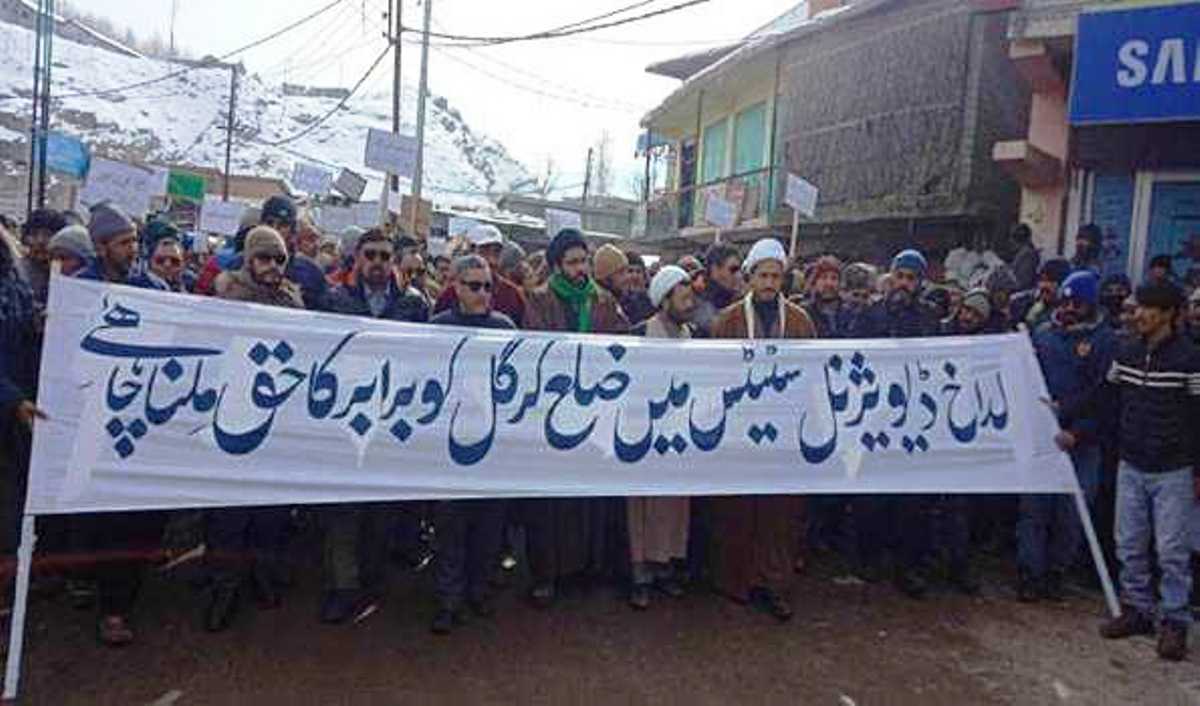
A lawyer by profession, Anil Kumar said, “nowhere in the country is such a weak domicile law.” Authorities recently asked officials to issue a certificate within two days. Some officials who insisted on proof were accused of corruption and hounded.
A senior officer in the administration said that Jammu in the near future would feel increased pressure. “The resources are limited and the number is increasing. The balance would get disturbed. Slowly the reality of August 5 decision is sinking in among the Jammuites.”
“We welcome the decision of scrapping Article 370, but that doesn’t mean it will be free for all,” said Gulchain Singh Charak, former minister and chief of Dogra Sadar Sabha, a 115-year-old socio-political organisation. “We have asked for safeguards on the lines of Himachal Pradesh or North-Eastern states. In terms of jobs, we have sought 80% reservation for locals.”
NC’s Jammu provincial president Devender Singh Rana said “a widespread apprehension is growing among permanent residents about their lands, as they fear the outsiders will usurp these at the strength of their affluence”.
The fear has prevented people from launching an agitation for land and job rights, says Panthers Party chairman Harsh Dev Singh, who spent 58 days under house arrest. “The government has created terror that whoever comes out will be arrested and cases will be registered against them.”
But Singh said people of Jammu demand “no outsider should be eligible to get government jobs or purchase land here.”















